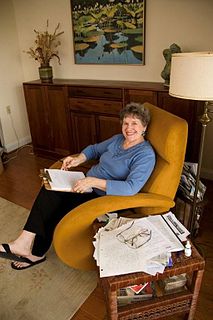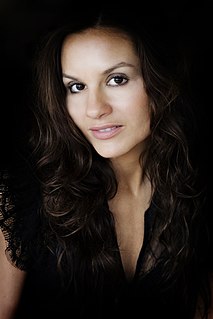A Quote by PJ Harvey
I think of myself as a songwriter, a weaver of story and imagination in a way that a novelist might write a book.
Quote Topics
Related Quotes
I always knew from the beginning that this was the only way to write Then We Came To The End - that it had to be in first - person plural if it was going to illustrate how the individual becomes part of the collective. I had no interest in writing the book in a more conventional voice. It goes back to that fascination I had with telling a story in multiple ways. It was the only choice I gave myself, really - I said "This is it, pal. If you can't tell a story this way, you're going to have to abandon the book. Write it this way or give up."
I read John Irving's novel 'The World According To Garp' when I was about 14 or 15. It was the first grown-up book that I had read. It is the story of a young man who grows up to be a novelist. I finished it, and I wanted to write a book that made the reader feel the way I felt at the end of that, which was sort of both bereft and elated.
Anyone of any age, any race, any background, any education - if they write an interesting enough book - can become a published author. What it takes is imagination, the ability to put words on a paper in an interesting, perhaps even unique way, the fortitude to rewrite, rewrite, rewrite, and polish, edit, polish, edit until the story sort of sings. I think everyone has a story inside him, but only a few have the persistence and, of course, the interest, to write it down and see it through.
Some years ago I wrote a book called The House on Eccles Street. To write this book I had to think my way into the existence of Marion Bloom...Marion Bloom was a figment of James Joyce's imagination. If I can think my way into the existence of a being who has never existed, then I can think my way into the existence of a bat or a chimpanzee or an oyster, any being with whom I share the substrate of life.
When a story or part of a story comes to me, I turn it over in my mind a long time before starting to write. I might make notes or take long drives or who knows what. By the time I give myself permission to write, I know certain things, though not everything. I know where the story is headed, and I know certain crucial points along the way.
Too many writers think that all you need to do is write well-but that's only part of what a good book is. Above all, a good book tells a good story. Focus on the story first. Ask yourself, 'Will other people find this story so interesting that they will tell others about it?' Remember: A bestselling book usually follows a simple rule, 'It's a wonderful story, wonderfully told'; not, 'It's a wonderfully told story.'
As a songwriter, you're allowed to write anything, and as a person, I am all colors in the rainbow. I've been through everything, you know, so I can write a positive song like 'Better Get to Livin'' because that's my attitude. But that doesn't mean I'm happy all the time. You can't be a deep and serious songwriter without feelings. You kinda have to live with your feelings out on your sleeve and get hurt more than most people. The fear I might get hurt means I might not be able to write another song.
I arrived at my way of "working" as a way of visually approximating what I feel the tone of fiction to be in prose versus the tone one might use to write biography; I would never do a biographical story using the deliberately synthetic way of cartooning I use to write fiction. I try to use the rules of typography to govern the way that I "draw," which keeps me at a sensible distance from the story as well as being a visual analog to the way we remember and conceptualize the world.
If you can find two poems in a book, it could be a pretty good book for you. You know, two poems you really like. There are some poets who are fairly big names in contemporary poetry and who write a book and I might like three or four poems in the book, but the rest of them don't appeal to me personally; but I think that's the way it really ought to be. I think it's really a rare thing to like everything that somebody has written.



































